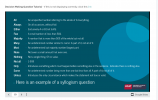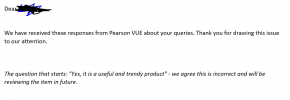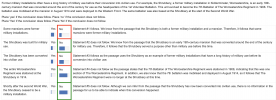-
Welcome to MSO!
We are an online community for current and prospective medical, dental and allied health students and early career professionals from Australia and New Zealand.Please read: About MSO | Annual Welcome and Important Information | MSO Rules
What's New
The following forums have recently been launched: -
Please consider registering on MSO. Benefits of registering are:
- Able to post and participate in the forum
- After 10 posts: Private Message Other Users
- After 25 posts: Access to the Chatbox
- After 100 posts: Custom user titles and Ad-free experience
If you would like to get involved with MSO or have ideas, suggestions, comments, criticisms or other feedback please Contact Us
Registered members with 100+ posts do not see Ads
UCAT: Decision Making
- Thread starter DrC
- Start date
Similar threads
Registered members with 100+ posts do not see Ads





